On February 19, news reports emerged that Pakistan has declared Mandarin as one of its official languages. This information was first put out by the Pakistani news channel Abb Takk news.
Senate Approves Motion to Declare Chinese as Official Languagehttps://t.co/GpMvhR0anu pic.twitter.com/lbbinXweXb
— AbbTakk (@AbbTakk) February 19, 2018
In no time, other news organisations followed suit. Across the border, Indian media agencies too reported this story, including news feed agency ANI.
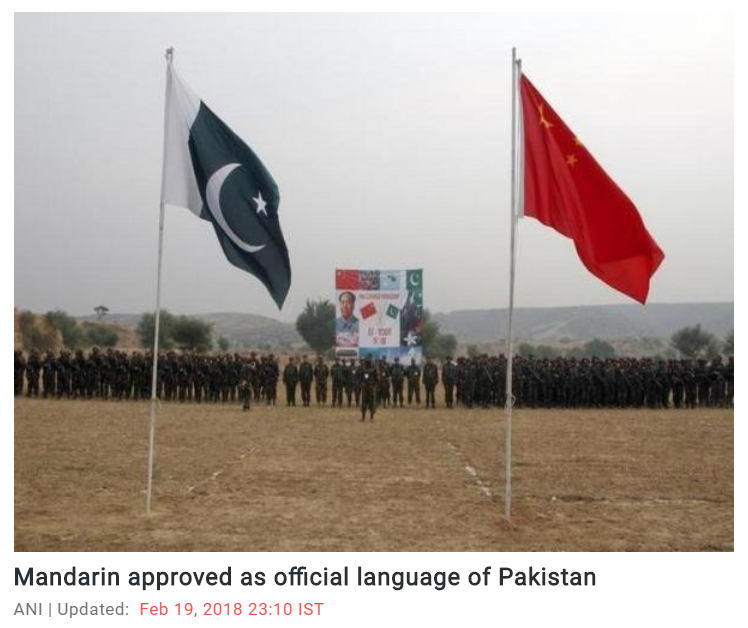
Basing its report on Pakistani channel Abb Takk news which first put out this information, ANI wrote “The Pakistani Senate on Monday approved a motion to declare Mandarin as one of the official languages of Pakistan. The motion said the step was necessary in view of ties between Pakistan and China, AbbTakk News reported.”
Television channels India Today and Times Now too reported that Mandarin had been announced as an official language of Pakistan.
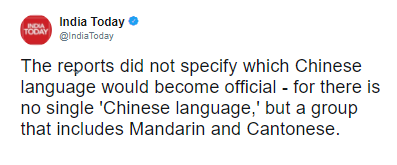
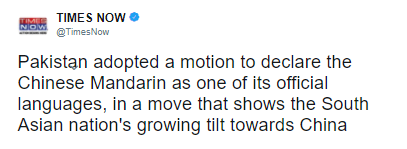 Newspapers were not to be left behind, as a number of them reported this news.
Newspapers were not to be left behind, as a number of them reported this news.
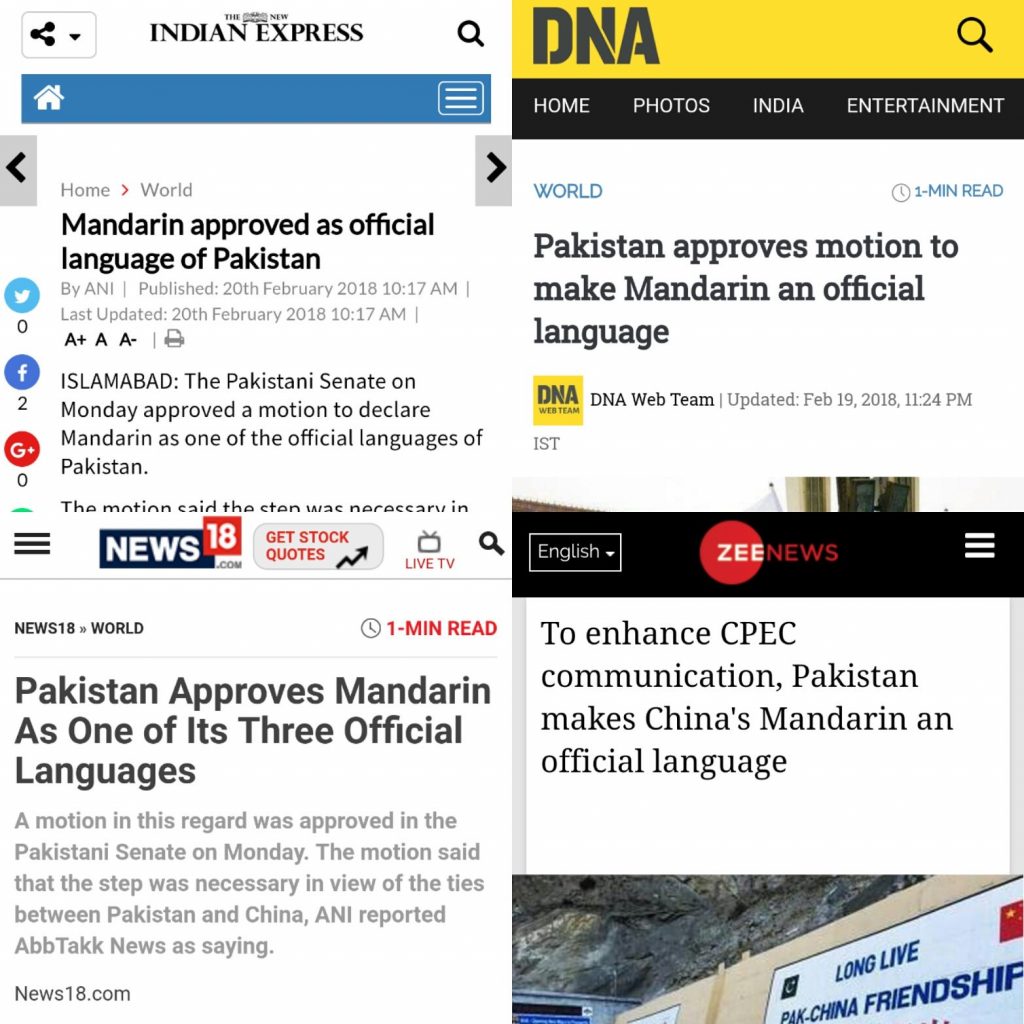
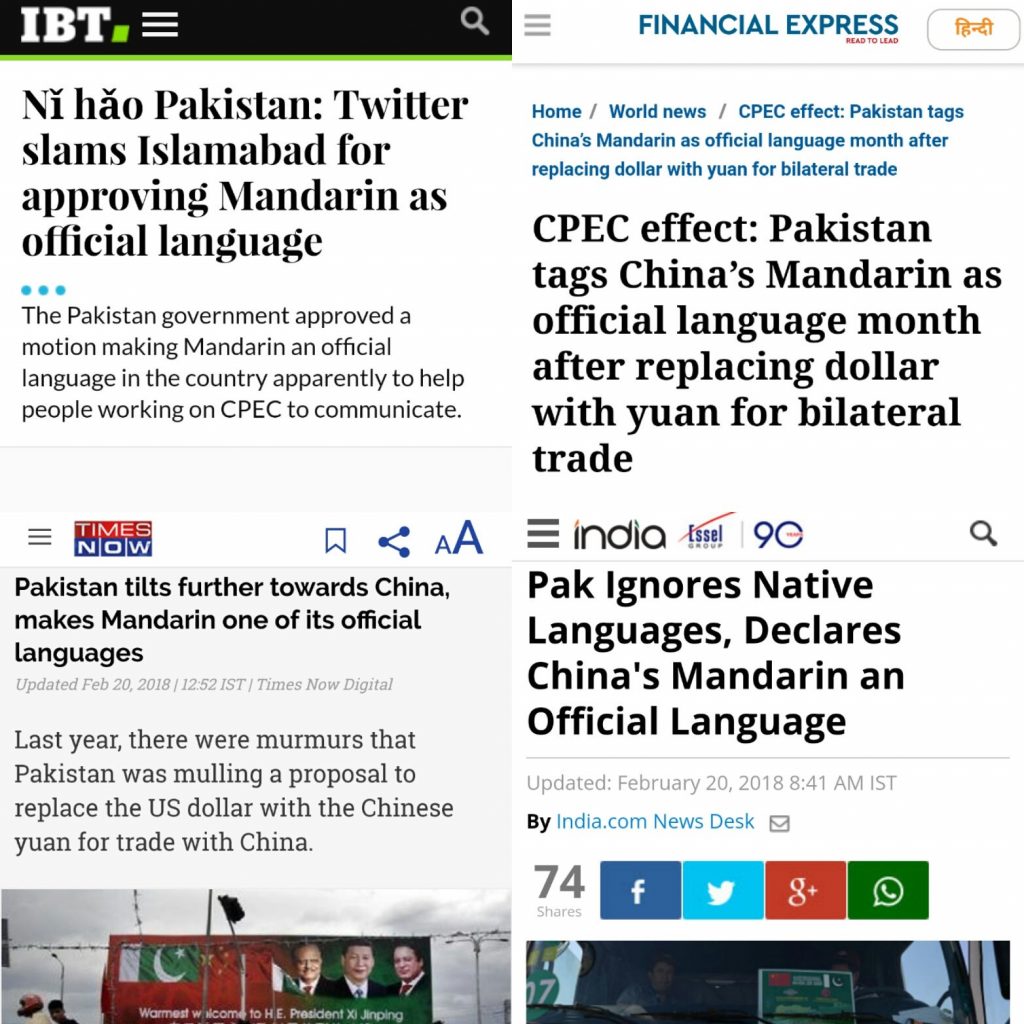
The news turned out to be fake. The Pakistani senate had not passed any such resolution declaring Mandarin as an official language of the country. This was pointed out by social media users.
Dozens of major media outlets, mostly Indian ones, have been incorrectly reporting that Pakistan made Chinese an official language, but apparently that is fake news and the Pakistani Senate actually just passed a measure for Mandarin language classes.https://t.co/TeMc7puebQ
— Ben Norton (@BenjaminNorton) February 20, 2018
What has transpired instead was that the Pakistani parliament had passed a motion to offer Chinese Language courses for Pakistani students in order to enhance communication, reduce communication gaps and secure jobs under the China-Pakistan Economic Corridor (CPEC) project. The motion had been passed by PPP leader Khalid Parveen and it stated:
“This House recommends that in view of the growing collaboration between Pakistan and China under the CPEC, courses of the Official Chinese Language should be launched for all current and prospective Pakistani CPEC human resource in order to overcome any costly communication barriers.”
Reports of Pakistan adopting Chinese as official language might be mistaken? This was was being considered: pic.twitter.com/SL7nBMBjC0
— Dhruva Jaishankar (@d_jaishankar) February 19, 2018
An error in reporting by a Pakistani news channel was relayed by its Indian counterparts without verification. The news turned out to be false, but this was realised by mainstream media publications only after they had reported it. Most news organisations later deleted this report.
This tendency to copy-paste reports instead of independently checking their veracity has been observed in other instances as well. Last week, reports went viral that the owner of Rotomac pens has fled the country after he defaulted on Rs.800 crore borrowed from banks. Multiple news outlets published this news without checking its authenticity.
After #NiravModi, Rotomac Pen’s Rs. 800 crore defaulter flees country https://t.co/P3HUOCCLXPpic.twitter.com/TClzv8KSpc
— NDTV (@ndtv) February 18, 2018
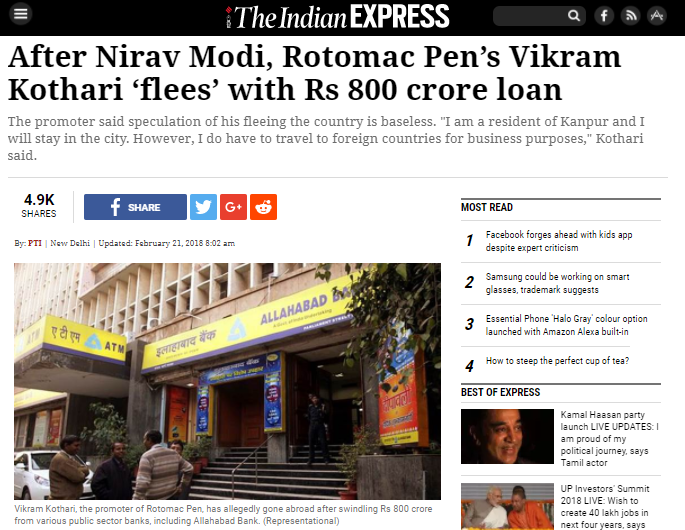
#FrontPage
Another Nirav Modi in making? Rotomac Pen’s Rs 8 billion defaulter flees country #PNBScamhttps://t.co/LQyH5Gh6japic.twitter.com/6x6z87Af4D— Business Standard (@bsindia) February 19, 2018

The news that Vikram Kothari, owner of the parent company of Rotomac pens had fled the country turned out to be false when it emerged that he was within the country. Kothari was arrested by the CBI and his properties were raided.
Earlier, when Ram Nath Kovind took over as President, news organisations reported how he had gained up to 3 million followers on Twitter in the span of an hour. A customary check would have revealed that it was the transition of data from the official account of the President of India, as a result of which followers got ‘transferred’ when Kovind inherited the official account from Mukherjee. This simple detail totally escaped a number of news organisations.
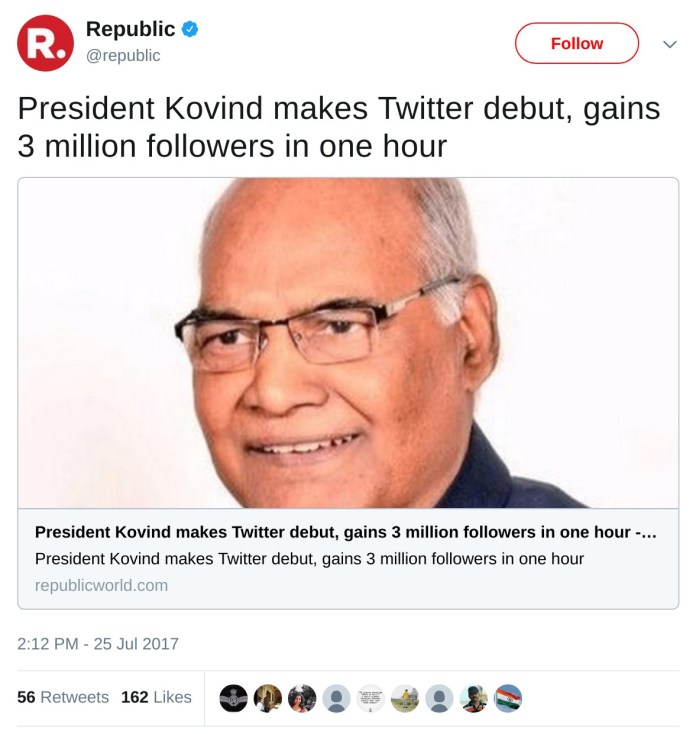
And who can forget last year’s brouhaha over what Snapchat CEO Evan Spiegl had ‘allegedly’ said about India, ‘news’ which was reported by a number of media publications leading to ‘nationalist’ outrage which claimed Snapdeal and Miranda Kerr among its victims. Authentication of information through independent verification is a sine qua non in journalism and inevitable to building and preserving credibility as a news organisation. Unfortunately, what we have seen in quite a few instances in recent times is a propensity for copy-paste journalism.
Independent journalism that speaks truth to power and is free of corporate and political control is possible only when people start contributing towards the same. Please consider donating towards this endeavour to fight fake news and misinformation.




